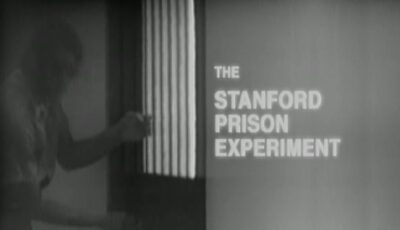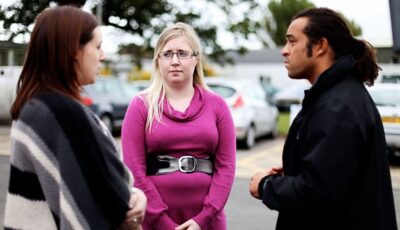Synopsis
Zimbardo explains the conclusions that he came to from the Stanford prison experiment about whether it was the situation or the people that led to the inhumane treatment of inmates.
- Programme: The Stanford Prison Experiment
- Channel: BBC Two
- Broadcast year: 2002
- Psychology | Non-custodial punishment as a response to criminal behaviour.
Licence: ERA Licence required
UK only
Staff and students of licensed education establishments only
Cannot be adapted
Add Notes
More clips on criminal psychology and managing offenders

The role of prisons | What Point Prison? The Debate
The role of prisons | What Point Prison? The Debate
A debate about what the role and point of prisons are in the UK. Is it a punishment or deterrent?

Should prisons be tougher? | What Point Prison? The Debate
Should prisons be tougher? | What Point Prison? The Debate
A discussion about whether prisons should be tougher for inmates in order to be seen as a real deterrent.

Women in prison | What Point Prison? The Debate
Women in prison | What Point Prison? The Debate
Women in prisons can have different outcomes and effects compared to men in prison.

Restorative justice | What Point Prison? The Debate
Restorative justice | What Point Prison? The Debate
An alternative to prison could be restorative justice and we hear a story of when it worked.

Zimbardo explains the experiment | The Stanford Prison Experiment
Zimbardo explains the experiment | The Stanford Prison Experiment
Zimbardo shows how the Stanford prison experiment was set up and what it aimed to show.

Footage from the Stanford prison experiment | The Stanford Prison Experiment
Footage from the Stanford prison experiment | The Stanford Prison Experiment
Real footage and interview with a participant showing what it was like to be in the Stanford pri...

Evil place vs good people | The Stanford Prison Experiment
Evil place vs good people | The Stanford Prison Experiment
Zimbardo explains the conclusions that he came to from the Stanford prison experiment about whether it was the sit...

A restorative justice example | Panorama
A restorative justice example | Panorama
Watch the process of restorative justice and how it impacts the victim and offender of the burglary.

Restorative justice process | Can Criminals Say Sorry?
Restorative justice process | Can Criminals Say Sorry?
Watch a restorative justice conference in action and how a well planned and supported meeting can help the situation t...

Restorative justice as rehabilitation | Can Criminals Say Sorry?
Restorative justice as rehabilitation | Can Criminals Say Sorry?
The restorative justice approach can lead to cooperation and reform. A former criminal talks how the process...

Prison rehabilitation scheme | The Prison Restaurant
Prison rehabilitation scheme | The Prison Restaurant
A unique rehabilitation scheme where prisoners work as chefs and waiters in a real restaurant inside the grounds of the ...

Open prisons and rehabilitation | Would That Work Here?
Open prisons and rehabilitation | Would That Work Here?
Focusing on Bastoy, open prisons in Norway follow the principle of normality and preparing for release.

Punishment or rehabilitation? | Would That Work Here?
Punishment or rehabilitation? | Would That Work Here?
Discussion about the differences between the prison system in Norway and the UK - are prisons meant for punishment, reh...

What Point Prison? The Debate
Stephen Sackur chairs a debate about the role of prison in the 21st century. He is joined by a panel of experts and an invited audience at the Galleries of Justice in Nottingham.

Restorative justice as rehabilitation | Can Criminals Say Sorry?
The restorative justice approach can lead to cooperation and reform. A former criminal talks how the process led to his rehabilitation.
